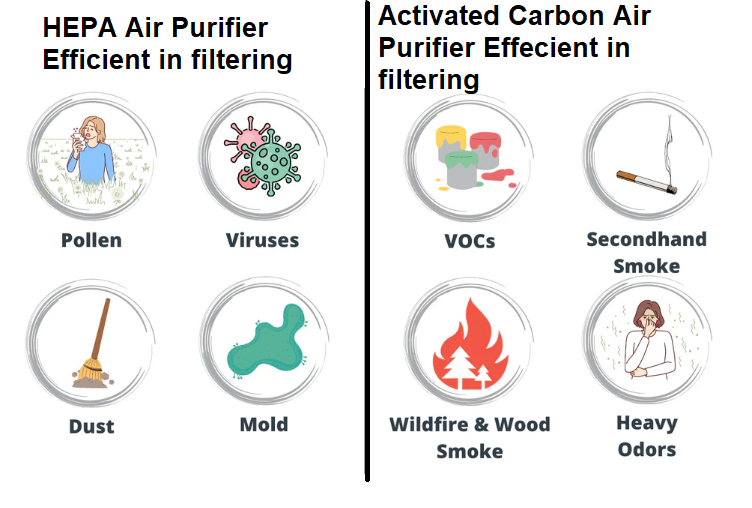HEPA Filters vs. Activated Carbon Filters: Advantages and Disadvantages
Both HEPA pleated filters and activated carbon filters are safe and effective for use in air purifiers. Each type offers unique advantages, so it's essential to understand the pros and cons of both to make an informed decision that best meets your needs
1. What is a HEPA Pleated Filter?
HEPA stands for High Efficiency Particulate Air. This type of pleated filter has been trusted for decades to clean indoor air and is the standard for fine particulate filtration. HEPA filters target airborne particles, removing them from your indoor air by capturing them in fine woven fibers before you can inhale them. Using an air purifier with a HEPA filter helps capture particles such as mold spores, dust, pollen, and virus particles.
2. What is a Activated Carbon Filter?
Activated carbon filters are another trusted type of filter used in indoor air filtration. These filters contain treated carbon that targets airborne volatile organic compounds (VOCs) such as formaldehyde, gases, and smoke.
3. The Pros and Cons of HEPA Pleated Filters
HEPA filters are ideal for filtering out particles such as dust, pollen, and mold spores. If your primary concerns are allergies, mitigating the spread of viruses, mold, dust, pet dander, and overall health, a HEPA filter in your purifier is the best choice. However, HEPA filters capture different pollutants than carbon filters. The drawback of relying solely on HEPA filtration is that you miss out on the benefits of carbon filtration for odors, smoke, and gases like VOCs
4. The Pros and Cons of Granular Activated Carbon Filters
Carbon filtration is ideal for those needing to eliminate heavy odors, smoke, and other dangerous gases from their homes. If your primary concerns are smoke, VOCs, and strong odors, then heavy-duty carbon filtration is the best option for your air purifier. However, similar to the limitations of having only HEPA filtration, the drawback of using only carbon filtration is missing out on the benefits of HEPA filters. Carbon filtration is not designed to capture pollen, dust, or other particulate matter.

